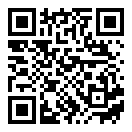Pages:
119-135
Receive Date: 2026/02/06
Accept Date: 2026/02/06
Abstract:
Abstract
Knowledge of man, after knowing God, is the most central issue in all religions because man is the objection of divine creation and a focus of so much attention that God has sent His prophet to guide him. On the basis of their view of man, religions depict the states of man's spiritual perfection as depending on the extent to which he can achieve the ultimate happiness and hence, consider self-knowledge as the first step in obtaining it. Accordingly, through an analytical - inferential approach, this paper investigates Zoroaster's attitude towards man and his existential dimensions, Zoroaster's self- knowledge, the educational implications derived from Zoroaster's knowledge of man in the four areas of educational goals, training methods and the characteristics of teachers and learners. Furthermore, based on Zoroaster's knowledge of man and his educational implications, this paper reviews some concepts and teachings which have been developed in the course of religion's development.
چکیده و کلیدواژه فارسی (Persian)
Title :نگاهی به انسانشناسی زرتشت و استنتاج دلالتهای تربیتی آن
Abstract:
انسان شناسی، پس از خداشناسی محوری ترین مسئله نزد ادیان است؛ زیرا مبنای آفرینش جهان و فرستادن پیامبران، برای انسان و هدایت او بوده است. ادیان بر اساس بینش خود نسبت به انسان، مراتب تکامل معنوی او را در نیل به سعادت نهایی انسان ترسیم می کنند و خودشناسی را نخستین گام در پیمایش این مسیر می دانند. این مقاله با روش تحلیلی ـ استنتاجی، به بررسی نگرش زرتشت به انسان و ابعاد وجودی او، خودشناسی زرتشت، دلالت های تربیتی برخاسته از انسان شناسی وی، در مقوله های چهارگانهی اهداف تربیتی، روش های تربیتی، ویژگی های معلم و متربی می پردازد. همچنین در این مقاله، بر اساس انسان شناسی زرتشت و استلزامات تربیتی وی، به برخی مفاهیم و آموزه هایی که در خط سیر تکاملی ادیان، تحول و تکامل یافته اند، مورد بررسی قرار می گیرند.
References:
- آشتياني، سيد جلال الدين، 1374، زرتشت (مزديسنا و حکومت)، تهران، شرکت سهامي انتشار.
- اعرافي، عليرضا و ديگران، 1381، اهداف تربيت از ديدگاه اسلام، تهران، سمت.
- افتخارزاده، محمودرضا، 1377، ايران؛ آيين و فرهنگ. تهران، رسالت قلم.
- اوشيدري، جهانگير، 1371، دانشنامة مزديسنا، تهران، مرکز.
- بويس، مري، 1374، تاريخ کيش زرتشتي، ترجمة همايون صنعتيزاده، تهران، توس.
- توفيقي، حسين، 1391، آشنايي با اديان بزرگ، تهران، سمت.
- تيواري، کدارنات، 1381، دينشناسي تطبيقي، ترجمة مرضيه شنکايي، تهران، سمت.
- خنجري، خداداد، 1375، بينش زرتشت، تهران، انتشارات تهران.
- دوستخواه، جليل، 1370، اوستا، تهران، مرواريد.
- رجبي، محمود، 1385، انسانشناسي، قم، مؤسسة آموزشي و پژوهشي امام خميني.
- رستمينسب، عباسعلي، 1382، «زرتشت و تربيت»، مطالعات ايراني، ش 4، ص61ـ74.
- رضازاده شفق، صادق، 1335، ايران از نظر خاورشناسان، تهران، مؤسسة انتشارات فرانکلين.
- رضوي، عبدالحميد، 1384، «نگاهي به تعليم و تربيت از نگاه زرتشت»، علوم اجتماعي و انساني، ش 4، ص 178ـ169.
- رضي، هاشم، 1344، زرتشت و تعاليم او، تهران، فروهر.
- شکوهي، غلامحسين، 1369، مباني و اصول آموزش و پرورش، مشهد، آستان قدس رضوي.
- شمشيري، بابک، 1385، تعليم و تربيت از منظر عشق و عرفان، تهران، طهوري.
- شهزادي، رستم، 1371، زرتشت و آموزشهاي او، تهران، فروهر.
- شهزادي، رستم، 1367، جهانبيني زرتشتي، تهران، فروهر.
- صديق، عيسي، 1336، تاريخ فرهنگ ايران، تهران، دانشگاه تهران.
- ضميري، محمدعلي، 1373، تاريخ آموزش و پرورش ايران و اسلام، شيراز، راهگشا.
- قائممقامي، احمدرضا، 1387، «ملاحظاتي کوتاه دربارة بعضي قواي نفس در متون زرتشتي»، ادبيات و علوم انساني، ش 187، ص 97 ـ 119.
- قدردان، مهرداد، 1387، جستاري در آيين زرتشت، شيراز، رخشيد.
- مطهري، مرتضي، 1363، تکامل اجتماعي انسان، قم، صدرا.
- نصري، عبدالله، 1376، سيماي انسان کامل از ديدگاه مکاتب، تهران، دانشگاه تهران.
- ـــــ ، 1361، مباني انسانشناسي در قرآن، تهران، بنياد انتقال به تعليم و تربيت.
- وکيليان، منوچهر، 1385، تاريخ آموزش و پرورش، تهران، دانشگاه پيام نور.
Cite this article:
RIS
Mendeley
BibTeX
APA
MLA
HARVARD
VANCOUVER
APA | MLA | HARVARD | VANCOUVER
Shamshiri , Babak, , Sheyda.(2026) A Review of Zoroaster's Knowledge of man and Inferring its Educational Implications. Ma`rifat-e Adyan, 5(2), 119-135
APA | MLA | HARVARD | VANCOUVER
Babak Shamshiri ; Sheyda ."A Review of Zoroaster's Knowledge of man and Inferring its Educational Implications". Ma`rifat-e Adyan, 5, 2, 2026, 119-135
APA | MLA | HARVARD | VANCOUVER
Shamshiri , B, , S.(2026) 'A Review of Zoroaster's Knowledge of man and Inferring its Educational Implications', Ma`rifat-e Adyan, 5(2), pp. 119-135
APA | MLA | HARVARD | VANCOUVER
Shamshiri , B, , S. A Review of Zoroaster's Knowledge of man and Inferring its Educational Implications. Ma`rifat-e Adyan, 2026; 5(2): 119-135




